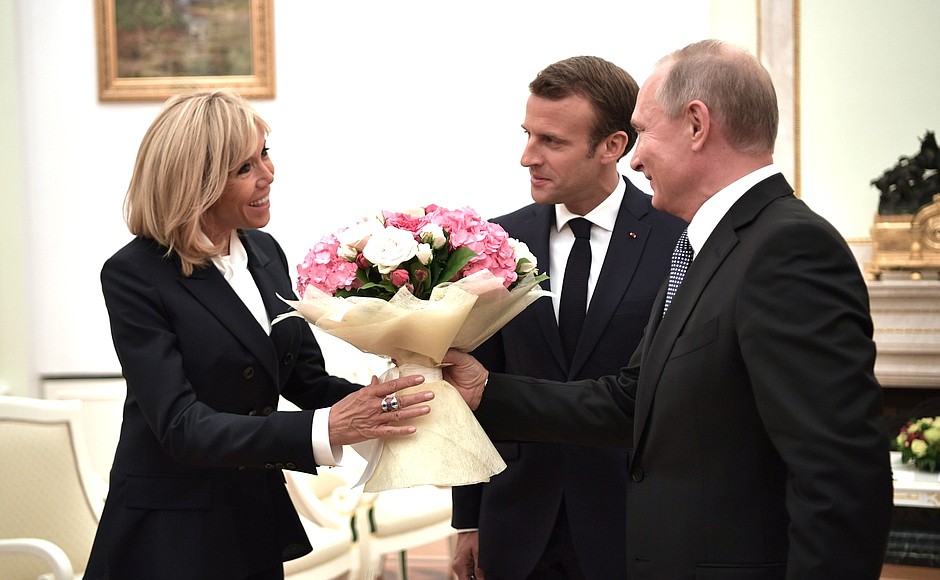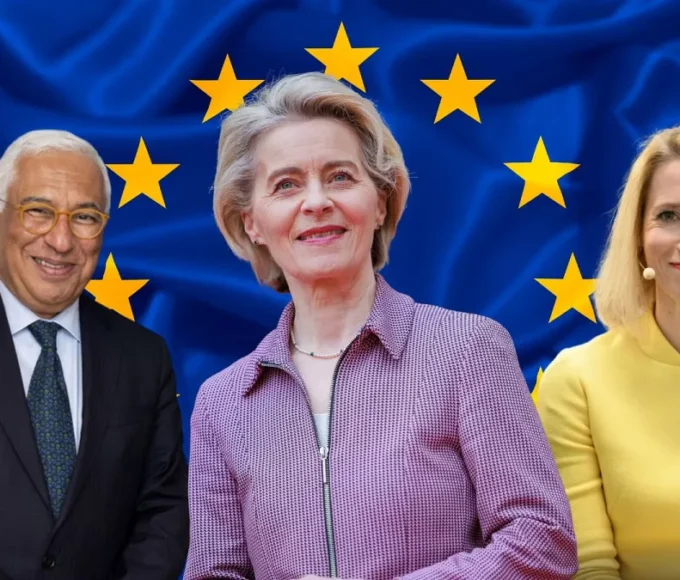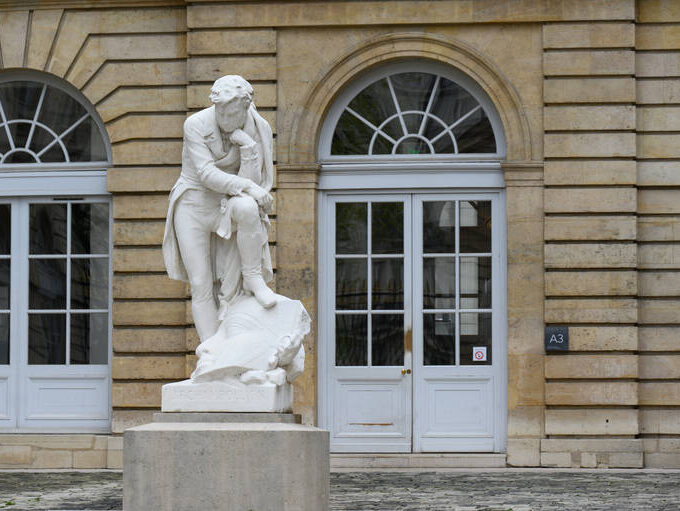Due to unrest in his country, President Emmanuel Macron canceled his state visit to Germany, the first for a French head of state in 20 years. Relations between the two countries are not in good shape, due to disagreements on questions of defence, strategic sovereignty, diplomacy or even ecology. Franziska Brantner, Member of the Bundestag, Germany, for the Green Party Die Grünen since 2013, and Parliamentary State Secretary for Economy and Climate is our guest.
This week was to be Franco-German. If the German Secretary of State for Economy and Climate, Franziska Brantner, regrets the cancellation of the state visit of Emmanuel Macron, she nevertheless understands the reason, after several days of riots and a climate which “concerns of course” our neighbor, she says. “I hope that France will find calm… for a good and honest reflection in order to find better societal cohesion.”
Despite the dissensions between the two countries, Franziska Brantner does not want to hear about a Franco-German divorce. On the contrary, it underlines the “magnificent common task” which brings the two countries together: “to create a more lasting prosperity”, which involves “the protection of our democracies and the defense of human rights”. It is a difficult common project, and we have to work a lot to find common solutions”.
The Shield of Discord
Defense issues are at the heart of the disputes between France and Germany, with the question of Ukraine’s membership of NATO – which Paris finally calls for, unlike Berlin which is more reluctant – and that of the anti-missile shield – for which Olaf Scholz wishes to turn to the United States and Israel when Emmanuel Macron prefers to buy European.
Even if Franziska Brantner concedes that “there are still questions to be resolved between France and Germany” in terms of defense, she notes above all that the two countries have each on their side made a change of point of view. “For a very long time, Germany was reluctant to the idea of European sovereignty and now this European sovereignty is written into the government’s coalition contract”, she explains, while on her side ” Emmanuel Macron had said that NATO was in a state of ‘brain death’ and he defends it now and even wants to expand it”.
Before adding: “It’s great that we have managed to leave the false debate between either European sovereignty or NATO to say ‘we are doing exactly both: we are creating our sovereignty, we are strengthening Europe , but at the same time we will remain very good and very close allies of the Americans.” She also sees no problem with Europe, while investing in the EU with its partners, “buying the best from the Americans or the Israelis on some aspects”.
Berlin “is not opposed to individualized trajectories”
The Franco-German tandem constitutes a critical mass in the European Union, comprising 48% of the GDP of the euro zone, and France has a debt of 111% of its GDP, against 68% for Germany. But Franziska Brantner does not want to cast shame on France. Above all, she stresses that the two countries must both “become faster, more flexible for our businesses, provide them with a qualified workforce and support processes for ecological and digital transformation”.
In the coalition government of which the Green Secretary of State is a member, the finance cords are held by the liberal Christian Lindner (FdP), who has just restored the ban on deficits. Should we expect a return to financial austerity in Germany, at a time when all of Europe is questioning the rules of the Stability and Growth Pact. Does Germany oppose individualized trajectories and the revision of the rules, as Paris would like? Franziska Brantner refutes this assertion and insists: Berlin “is not opposed to individualized trajectories. The question is which trajectories and what framework for these trajectories, who monitors, etc. We do not disagree on the principle, but on implementation”.
Sweden’s right-wing and far-right coalition government on Sunday condemned the burning of the Koran outside Stockholm’s main mosque, calling it an “Islamophobic” act. This controversy affected all of Europe and revived the debate on the right to blasphemy or to criticize a religion. Franziska Brantner points out that this debate has not been a priority in Germany in recent days, but she stresses that it is “obviously clear and important to have a secular state that safeguards the rights of all its citizens, whether they are believers or not […] and it is up to each State to decide its laws”. Turkish President Recep Tayyip Erdogan took advantage of this act to confirm his rejection of Sweden’s membership in NATO. For Franziska Brantner, “it’s not Sweden against Turkey but it’s a question for the European Union as such because it is in the interest of the Union that Sweden can access as soon as possible to NATO”.
“We have to worry about the rise of the far right”
The far right is making its way into all the countries of the European Union. After the election of Giorgia Meloni in Italy, the Swedish and Finnish coalitions and the general elections in Spain – which gave rise to coalitions with the Vox party in several regions and caused Prime Minister Pedro Sanchez to call early legislative elections for next July 23 – the AfD (Alternative for Germany) is credited with 20% of the intention to vote. A far-right party candidate, Hannes Loth, won the mayoralty of a town of 9,000 people. “We have to worry about the rise of the far right. It’s something that concerns me, worries me and against which I fight daily to defend our democracies and our values”, says Franziska Brantner.
But above all she wants to put it into perspective in a “great moment of insecurity, not only in Germany but in Europe […] The war in Ukraine affects Germany even more than France, with a million refugees Ukrainians and our dependence on Russian gas, which we have stopped buying, which increases energy prices […] If there are democratic actors who still play on insecurity to increase their political capital, it This is where the populists rise and it is the role of all democratic parties to find a way to discuss, without increasing insecurity and without being populist”.
July 12 is eagerly awaited at European Parliament, with the vote in plenary of the famous law on the restoration of nature, one of the most controversial texts of the European Green Deal. This sets binding targets for rehabilitating degraded habitats and extinct species. The right and the extreme right are headwinds against this project. Franziska Brantner says she is first of all “very happy that we have succeeded in reaching an agreement on this law within the Member States, under the Swedish presidency [of the Council of the EU, editor’s note]. It is obvious that the state of our nature cannot leave us cold. We must protect our countryside, our woods, our water more. It is our source of life. It worries me to see that the right in the European Parliament is forming an alliance with the extreme right on this subject, instead of debating as we did for all the other laws on the best way to find a European agreement. I hope that the right will return to the democratic consensus”, she concludes.
This article is originally published on france24.com








